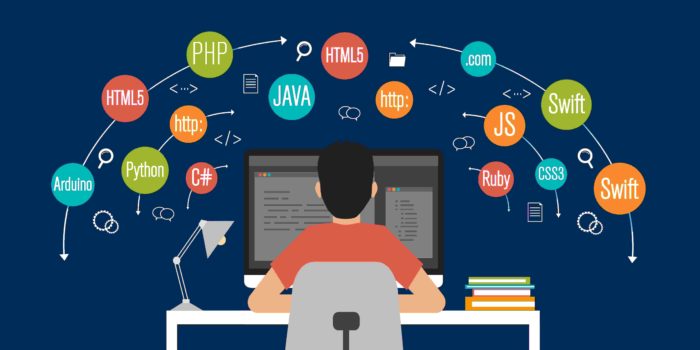
Programming and coding expertise are highly sought-after in our digital economy. Fields from software engineering to data science to robotics require fluency in languages like Python, Java, C++, SQL, JavaScript and more. Mastering these universal skills opens doors across industries. Through online courses, bootcamps, certifications and project practice, you can launch a thriving programming career.
Start with Introductory Courses
Free online courses like Harvard’s CS50 or edX Computer Science 101 are excellent starting points learning foundational concepts like algorithms, data structures, and debugging. Required Coursera and Udemy beginner classes also impart core theory and basic syntax of popular languages like Python, Java and JavaScript through hands-on assignments.
“Intro classes give you a taste of different coding styles to determine what you like,” notes Google engineer Max Zhou. Narrow future focus after sampling broadly.
Consider a Coding Bootcamp
Immersive bootcamps from providers like General Assembly, Hack Reactor, Flatiron School and Thinkful offer accelerated training in web development, coding fundamentals and programming specialties. Most run 12-16 weeks teaching skills through intensive hands-on group work. Some assist with job placement too.
“Bootcamps efficiently teach practical skills and simulate real coding environments,” explains camp grad Jenna Park. Weigh cost-benefit for your learning style.
Pursue a Technical Certificate or Degree
More extensive technical education through community college certificates, bachelor’s degrees in computer and data science, or college coding bootcamps builds robust expertise. Coursework imparts theoretical depth complementing hands-on proficiency. Emerge ready for software engineering and development roles.
“Diplomas validate well-rounded coding mastery that employers seek over self-guided learning alone,” remarks professor David Yang. Traditional programs still carry weight.
Master a Specific Language
Choose one or two languages like Python, JavaScript, C++, SQL, Swift or Java to deeply learn based on industries you’re targeting. Develop fluency through online tutorials, courses and books focused solely on those tongues. Experiment extensively applying them to projects. Become an expertimplementer in your chosen languages.
“Specializing made me stand out over jack-of-all-trades coders,” explains Apple developer Priya Sawhney. Focus on niche skills that fill needs.
Build a Portfolio of Applications
Applying your coding skills through substantial projects for your professional portfolio proves capabilities. Contribute to open-source platforms like GitHub. Create your own programs and apps addressing problems or needs. Participate in hackathons to demonstrate speed and collaboration skills.
“Building robust applied projects is how you leapfrog entry-level roles,” says hiring manager Zack Peterson. Show don’t just tell what you can do.
Obtain Relevant Certifications
Certifications in specialized coding applications, platforms and languages signal mastery employers seek. Options like AWS, Java, Salesforce, Azure, CCNA, MCSD, PMP and Scrum Master certs verify abilities in-demand across industries. Exams demonstrate you have up-to-date expertise.
“The right certs on a resume instantly qualify talent for higher-level roles,” notes recruiter Maya Lai. Tests back your brand.
Practice Critical Soft Skills
Beyond pure coding proficiency, programmers need communication, teamwork and critical thinking to collaborate solving complex problems. Written and verbal articulation, task management, organization, analytical reasoning, creativity and inline documentation abilities prove you can do more than just code.
As Google VP Liz Ma explains, “Well-rounded human skills paired with coding expertise are the total package we hire.” Go beyond coding alone.
Stay Current Through Online Communities
Join industry forums and groups discussing new languages, changing developer needs, updates and innovations. Contribute thoughts, ideas and questions. Learning alongside peers through these communities builds connections while keeping your skills relevant.
“My online programmer groups provided invaluable continuous education and networking,” says startup CTO Fatima Abbas. Peer wisdom nurtures lifelong learning.
Freelance and Consult
Once established, freelancing and consulting projects let you code for diverse clients sharpening competencies. It also builds real-world experience showcasing abilities to future employers. Plus, independent work affords scheduling flexibility.
“Freelancing expanded my portfolio and client communication abilities exponentially faster,” recalls developer Leo Cheng. Client work multiplies skills quickly.
With strategic education, niche expertise, career-aligned projects and communication finesse, today’s lucrative programming field is within reach.








